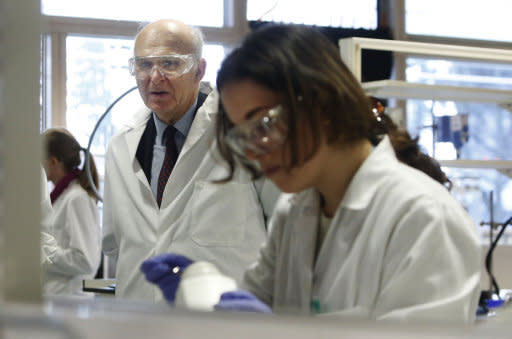UK biotech and healthcare industry to pick-up post Brexit

The UK biotech and healthcare industry is to experience a pick-up in a post-Brexit environment, say analysts.
One of the global demographic drivers is the ageing population in the West demanding more medical attention.
Increase in M&A activity
Do we see the potential for further UK M&A activity in 2017?
Adrian Lowcock investment director at Architas believes the sector is considered attractive for long term investors.
He says: “It seems valuations in the biotech sector have settled down following a strong run a couple of years ago but the way the industry is structured means that there is always the potential for M&A activity.”
One trend identified by Lowcock is that large pharmaceutical companies like to buy biotech only once they have completed the riskiest part of the research and development (R&D) and have something worth buying.
Lowcock says: “This is cheaper than doing the R&D themselves as they only have to buy those companies which have potential. The M&A activity might not return to levels seen in 2015 but it is a constant of the industry and supports valuations in the sector.”
In 2014, the US drugs giant Pfizer withdrew its £69 billion takeover bid for AstraZeneca. Ben Yearsley, investment director at the Wealth Club questions will the UK pharmaceutical firm AstraZeneca attract another bid?
Top performing biotech fund
In February, the pharmaceutical and biotech companies returned to the fore.
Yearsley says one of the top five performing funds was a health and biotech fund, the Axa Framlington Biotech.
When considering investing in the healthcare and biotech sector in a post-Brexit world there are a couple of elements to consider.
Yearsley says: “In the very short term, with sterling’s weakness earnings and therefore dividends get a shot in the arm – also there might be some M&A activity as overseas companies look to buy UK businesses.”
He believes Brexit is unlikely to have a negative impact on the biotech and healthcare sector.
But in the long-tern when all the Brexit related commotion has died down, Yearsley says: “I don’t think there will be any meaningful negative impact on the sector. Assuming they haven’t all been taken over, we will still have some world leading companies in the space, we will still have world leading universities such as Oxford, Cambridge and Imperial College developing exciting ground breaking drugs and medical breakthroughs and we will still innovate.”
Although in a post-Brexit environment there is some concern the UK government might have to replace some EU grant funding.
Written by London-based journalist Tanzeel Akhtar. Her work has been published in the Wall Street Journal, FT Alphaville, CNBC, Citywire, Euromoney, Interactive Investor.

 Yahoo Finance
Yahoo Finance 
